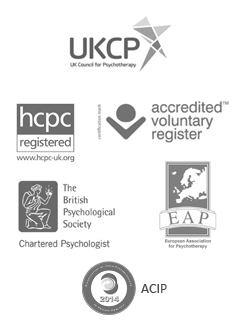Embarrassed after a Suicide Attempt
Reader’s Question
I often place in the middle of the night stuck with my ridiculous thinking about a topic. I just be sure to name and understand all of our feelings related to my suicidal attempt three years ago or maybe more; I’m not so sure about date. Sometimes when I feel my suicide attempt I have found weak and feel ashamed by own self. Therefore i’m being consumed by the indisputable fact that the people who know about health care professional attempt are thinking that I am currently weak, miserable and self conscious about the fact that I tried in vain to end my life. In short Website owners want to know more about why I really get this sinking feeling. I truly am proud to say that I product pretty curious about psychology & aware that what I am impression, perception is not normal. I have attempted several times to find out about it using no results. I hope you are able to help me by at least identifying the feeling.
Psychologist’s Reply
I believe what you feel may be exactly what many who have been in your sneakers have felt before: pity. It is that feeling associated with guilt, regret and unhappiness that we all feel sometimes in our life. Unfortunately, shame could be a very devastating emotion that may make our situation plus struggles worse, not much better. Shame is an emotion associated with disgrace and unworthiness contained in inside of us. However , which is only part of what someone that is in recovery from a committing suicide attempt must face. There is certainly another part that is just like crippling: stigma. Stigma originates from the world around us. Modern society sends that message that people are flawed in some way, vulnerable and undeserving, and that what we should have done is unforgivable or even taboo.
There is certainly significant stigma around those who have thought about suicide, who have attempted to kill themselves or that have even completed suicide. The particular messages we receive regarding suicide from the media, the peers, and even our family members portray those who are struggling with committing suicide as weak, crazy or even defective, and selfish. This particular stigma is often quite dangerous and does not account for facts about depressive disorder or about the chemicals within our brain. The stigma just serves to make those who have trouble with depression and suicide really feel more shameful. This can actually lead to more suicidal thoughts. For a few of my clients, this is a cycle that can go on and upon.
Although behaviour toward suicide are gradually changing for the better — we’ve seen many people talk out on the stigma associated with suicide when Robin Williams died, for example — however, the stigma is still sufficiently strong in our culture that it stops most people, especially the elderly, through talking about it. Many people are scared to talk about suicide, which just makes it more difficult to understand plus help. If we are hesitant to say anything because of just how others might react, we have been less likely to seek help plus support from those who can offer it. A good suicide avoidance program seeks to remove the particular stigma associated with feeling by doing this.
Try Online Counseling: Obtain Personally Matched
(Please read our essential description below. )
There are many elements to our society that are shaming towards those with depression plus suicidal thoughts. We often say individuals “commit” suicide like they might “commit” a crime or perhaps a sin. This type of language continues to be used to try and shame individuals away from killing themselves. I realize that we as a society might have good intentions with this, however it only pushes those with despression symptoms to hide and not seek assist they need. It only can make it worse.
Probably the most common thoughts expressed simply by my clients who have attempted to suicide or were considering it are things like “I’m weak”, “I’m a burden to everyone” and “I must be insane. ” I’ve talked about these types of ideas before in my content “ four Myths About Suicide . ” One of the worst issues this stigma does will be convince us that we have to hide our feelings plus struggle on our own, solely. Feeling alone with our melancholy only serves to make it really feel more intense. Often I actually hear my clients declare they won’t talk about this because family, friends, plus doctors won’t understand. I actually can’t promise you that will everyone you want to understand will certainly (maybe because they have bought to the negative messages and stigma), but you are not alone. There are plenty of out there who have had to cope with this just like you, and uncovering people who understand is helpful within recovering from a suicide try. Whether you find them within your family, friends, social network, or even in a depression support team, it can be life changing. There are plenty of online learning resources as well to help you begin to determine what it means to recover from this, which includes at Waking Up Alive , What Happens At this point? , and beyondblue . For a lot of of us who know someone that is dealing with depression, we have been often afraid to request if they are thinking about suicide. Simply asking, however , can go quite a distance toward helping reduce the stigma around it by stating it’s alright to talk about this.
Please read our Essential Disclaimer .
Just about all clinical material on this site is certainly peer reviewed by a number of clinical psychologists or additional qualified mental health professionals. Initially published by Dr Philip Thomas, PhD on and last evaluated or updated by Dr Greg Mulhauser, Handling Editor upon.
https://askthepsych.com/atp/2016/01/05/shame-after-a-suicide-attempt/
All copyrights for this post are reserved to inquire a therapist

